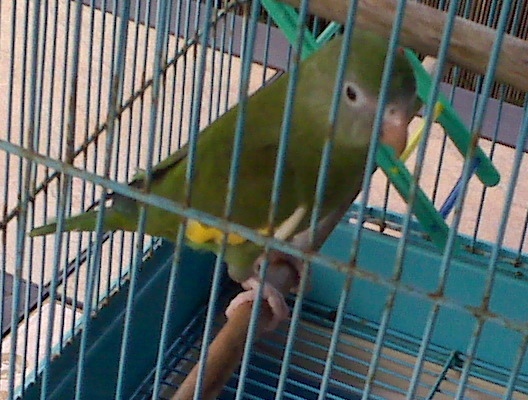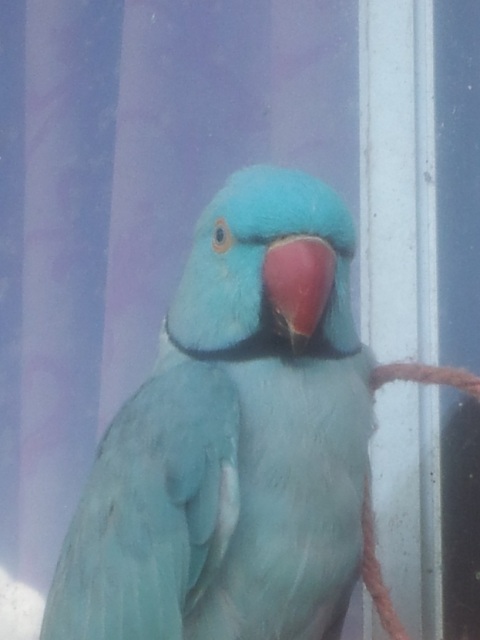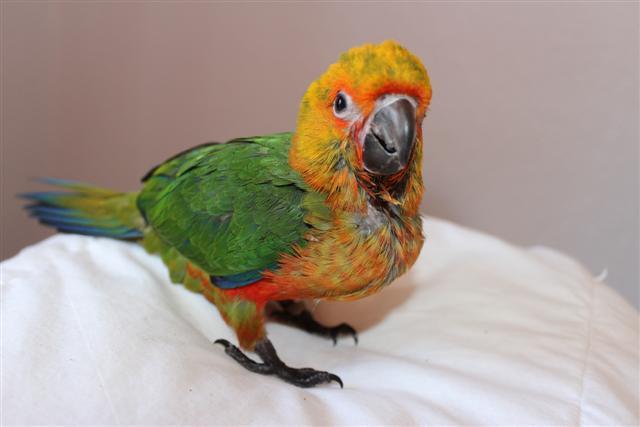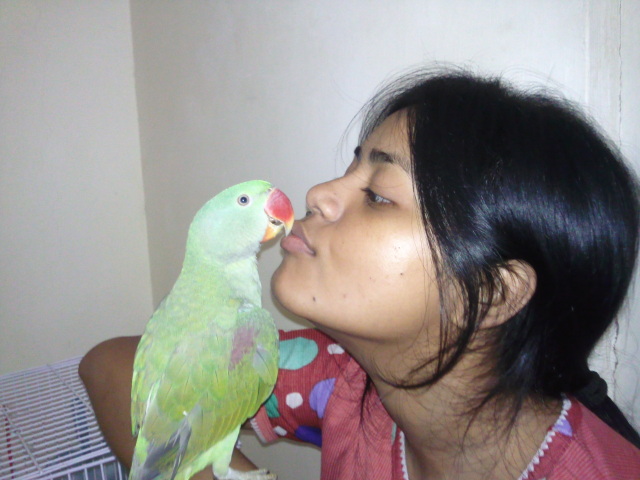Questioni got a female indian ringneck and she wont let me pet her. i had her for 5 months. what do i do so i can pet her.. thanks kari
AnswerOne of the biggest mistakes people make when it comes to their parrots is thinking of them like a dog or cat. Parrots are actually much more intelligent than these mammals, recently ranked with apes, chimpanzees and dolphins in their highly developed sense of awareness and intelligence.
Once people really understand that it's just a matter of being compassionate, patient and understanding. Imagine a child, no more than a toddler, barely able to speak - snatched from the home and the people they were comfortable with and thrust into a new environment with new people speaking a language they can't understand and not really knowing what's expected of them.
Parrots, with few exceptions, don't care so much for petting. Some birds will allow the occasional neck 'scritching' (little, gentle scratchings at the back of the head), but petting is something reserved for mammals, not our avian friends.
Since they don't understand what you're trying to do, out of fear and frustration, confusion and insecurity, they will lash out. Now, if it were really a child we'd say they had a severe behavior problem. When it comes to a bird, we not only say the same thing, but we further attach "it's mean" or "it hates me" to our faulty evaluation.
What people need to do is look at things not from a human point of view, which makes perfect sense to us since we're human; but, look at things from the parrot's point of view. This is really much harder because we're not parrots.
Once you understand why they do something it's much, much easier to be understanding and patient. Give them time, let them learn at their own pace and never be harsh. You see, since most of them will outlive you, they don't see what the hurry is. If you keep in mind that this bird will probably be around for another 10, 20 years, it helps put it in perspective for you too.
I've got more tips on learning how to interact here:
www.4AnimalCare.org

 Indian Ringneck Health Issue
QuestionI have an Indian Ringneck who had been neglecte
Indian Ringneck Health Issue
QuestionI have an Indian Ringneck who had been neglecte
 What type of parrot is this?
Question
Friendly bird
A week ago ths small parrot flew
What type of parrot is this?
Question
Friendly bird
A week ago ths small parrot flew
 RE: Indian Ringneck probems
Question
Indy our Ringneck
Thank you for your he
RE: Indian Ringneck probems
Question
Indy our Ringneck
Thank you for your he
 Jenday Conure Weaning?
Question
Castor the Conure
Hi
I have a 9 week o
Jenday Conure Weaning?
Question
Castor the Conure
Hi
I have a 9 week o
 can i give my parrot chole(chana) called in hindi
Question
my little chaddi alexa
dear sir,
can give chan
can i give my parrot chole(chana) called in hindi
Question
my little chaddi alexa
dear sir,
can give chan